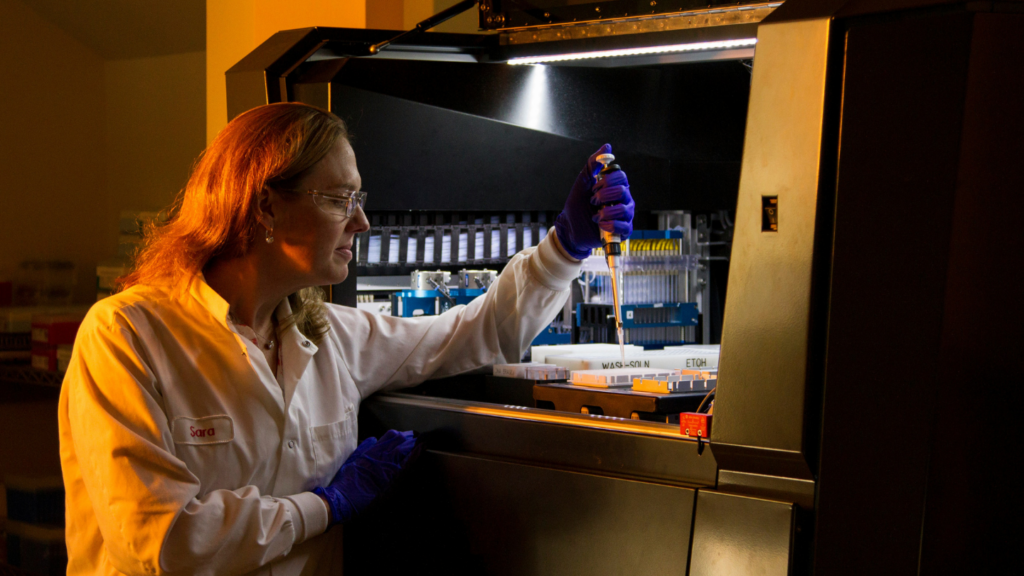
On the 11th of February, we reflect on the field of science and more specifically on how girls/women have contributed to this or could contribute in the future.
What is the International day of women and girls in science?
The International Day of Women and Girls in Science was created to promote equal access to and full participation in science for all. Now, however, this does not appear to be the case. Only one in three scientists are women, and only 35 per cent of science students are women. Consequently, the International Day of Women and Girls in Science was created to break gender stereotypes, defy gender bias and counter discrimination that prevents girls from choosing STEM studies or careers.
Key women in science
Role models can have an important impact on (young) girls to choose a study in a STEM domain. They are an effective way to reduce and break through gender stereotypical associations.
In honour of the International Day of Women and Girls in Science, we made a selection of some important women who have historically or presently made significant contributions to one of the STEM fields.
Ada Lovelace (1815 – 1852)
Although girls in those days were mostly educated to be good housewives, Ada’s mother had a different plan for her daughter’s future. Just as she herself was educated in mathematics, Ada’s mother wanted the same educational opportunities for her daughter. And so, lucky for us, Ada got a maths education. Through her teacher, Ada comes into contact with Charles Babbage, a close friend and fellow mathematician. He invented the early version of a calculator.
Ada and Babbage brainstormed about a machine that could both store a programme with a set of instructions, commands and operations and keep track of data. Babbage called the idea pure fantasy, but Ada was visionary enough to write the first computer
programme from this idea. Ada Lovelace thus co-invented our modern-day computer.
Annie Easley (1933 – 2011)
In 1955, Annie Easley was hired as a human computer at NASA, then called NACA (National Advisory Committee for Aeronautics). She became one of four African-American emplo-yees, out of a total of 2,500. When the human computers were replaced by mechanical ones, she too grew along with technological developments. She ended up working for NASA for 34 years.
In her 34-year career, she made crucial contributions to NASA’s rocket systems and energy technologies. For example, she helped develop and implement computer code that analysed alternative energy technologies, as well as a project investigating ozone damage.
Adele Goldberg (°1945)
Adele Goldberg was an American computer scientist, working at Xerox PARC (Palo Alto Research Centre) as a laboratory and research assistant. She was later assigned the position of manager and was head of the System Concepts Laboratory. Together with this team, she developed the programming language ‘Smalltalk-80′. This language eventually became the inspiration for Steve Jobs’ Macintosh control system of the now famous Apple computer. Without Adele Goldberg, the Apple computer would probably have looked completely different.
Kimberly Bryant (°1967)
Kimberly Bryant is predominantly known as the founder of Black Girls Code in 2011, a foundation that aims to teach programming to as many black girls as possible. When she was a student herself, Bryant was the only (African-American) girl in her field of study and often felt she did not belong in such technical fields. When her daughter showed similar interests regarding engineering and science, Bryant decided that her daughter would not experience the same feelings. Bryant herself created the learning environment for her daughter that she herself would have liked by founding Black Girls Code.
Valérie Tanghe
Although Valérie Tanghe can nowadays be found on list of ‘Groen’ these days (and as head of the Board of Directors of our Amazone team), she owes her title as role model in the science domain to her being the winner of the ICT Woman of the Year 2023. Tanghe was in fact director of the technology branch at Accenture for two years. She left this position in January 2024 to support companies independently, but also to take up a political role within the political party ‘Groen’.
Valérie Tanghe studied electronics at KU Leuven, specialising in telecoms. This launched her career in technology, culminating in the position of managing director at Accenture’s tech-nology depar-tment, for which she was named ICT Woman of the Year 2023. Valérie Tanghe herself says that Judith Resnik was an important role model for her to stand where she stood when she was elected ICT Woman of the Year. So you see, even new role models have had their own.
Kiara De Priest


